How To Support & Encourage Shy Children
What Would You Say Causes Shyness In Children?
“Shyness is a kind of sensitivity. It’s caused by our brain trying to keep us safe from danger. Shyness often happens when we are faced with new or uncertain people or situations, or when people are watching us. We might feel shy when we are around people we don’t know very well but for other, it’s part of our wiring. Shyness can be inherited from a parent, or it can be caused by the balance of hormones in our bodies and brains. For others, it can start as a result of dominant or controlling parents, fear and stress in the home, death or divorce, money worries, moving home or school, bullying, or adolescence and body changes.” – Nadia Finer, shyness expert & founder of Shy & Mighty
“Shyness is sometimes caused by a lack of confidence or a feeling of insecurity, but it can also simply be a symptom of enjoying one’s own company or inner world and finding solace and comfort in one’s imagination, rather than in interactions with others. Extroverts are said to draw energy from those around them while introverts are said to recharge on their own.” – Dr Alison McClymont, leading child psychologist
How Do You Know If Your Child Is Shy?
“Shyness often reveals itself at school. School is noisy and chaotic, and classes can be big. Shy kids have ideas and something to say, and want to raise their hand, but they don’t. Asking questions can feel daunting. Shy kids worry about messing up, so they stay silent. They don’t get involved with presentations or plays or activities or competitions. They may find it hard to make friends. You might find that your child is not keen to go to parties, or they struggle to make new friends and don’t want to perform or enter competitions. They might seem anxious in situations where they’re meeting new people, during difficult conversations, being watched or judged. Their fears make them want to hide and avoid taking a risk.
“Shy children are often overlooked and ignored by teachers, because teachers are not often shy themselves – shyness is not always understood. Shy kids hide in the background. Because they are quiet and are not causing trouble, they go under the radar, often not fulfilling their full potential. You might receive feedback from teachers that your child is not speaking in class. That they’re not contributing, or they seem disengaged or uninterested. In fact, their lack of contribution may be due to shyness and fear of speaking in front of the class, or even directly to the teacher, a grown up in a position of authority. Shyness is more common than you might think. It seems that around 50% of humans are shy, although results vary from country to country. Shyness is not rare, or uncommon or weird – and they are definitely not alone.” – Nadia
“It can be difficult to detect shyness because what may look like shyness on the surface could just be an introverted child or a normal phase of development like separation anxiety. An introvert won’t like busy loud places, will likely tire easily after being around noise, will choose to have smaller groups of friends, likes time alone, and doesn’t feel the need to be the loudest or most enthusiastic/boisterous child. Their needs are very different from an extroverted character, which can often look like shyness or a child lacking in confidence. However, a shy child is recognisable from the following: seeming nervous in new situations, hiding behind parents, turning red from embarrassment easily, avoiding human interaction where possible, crying if someone asks them a question, or not wanting to make friends and struggling to interact with other children.” – Jenna Farrelly, children’s emotional wellbeing expert at Motherfit
At What Age Will Most Parents Notice It?
“As babies develop their social skills, they become involved in new social situations and experiences. By the time children are eight months old, parents might begin noticing some symptoms of shyness. For example, they might experience that their baby frequently hides their head against their parent's legs when people talk to them and resists trying new things. They might also be anxious or restless and cry when faced with unfamiliar people or situations. But before concluding that your baby is shy, you must first consider whether they might be going through a stage. Real shyness is more likely to present itself when they are slightly older, around the toddler age.” – Jane Magnani, co-founder & head of education at Babbu
When Does Shyness Become A Problem?
“Shyness becomes a problem if fear stops them from doing the things they want to do. It can be a negative when shyness causes them to miss out, stops them from speaking in class, making friends, getting involved and generally sharing their voice. If their voices are missing from the conversation, that can have an impact on their happiness, and the things they can achieve. But it also has an impact on society. We need a mixture of people and voices. In order to solve the trickiest problems and generate the best ideas in society, we need a mixture of personalities and preferences. And yet, the quietest voices are often ignored, or overlooked.” – Nadia
What’s The Difference Between Shyness & Anxiety?
“Shyness is a form of social anxiety, and social anxiety is an extreme version of shyness. It’s at the very far end of the scale and it can dominate someone’s life, stopping them from doing all kinds of daily activities, like going out with friends, eating in front of others or using public toilets. Social anxiety disorder (also known as SAD) can lead to things like depression, self-harm or substance abuse later in life. Although similar, social anxiety is not the same as shyness. It’s a lot less common and it’s a lot more debilitating. However, the term ‘social anxiety’ has become normalised, particularly on social media, and is being used more and more interchangeably with shyness.” – Nadia
What Are The Disadvantages Of Being A Shy Child?
“Shyness can be frustrating. Shy people know they can do things, but they would much rather do things where nobody can see them. Shyness can make them want to shrink and hide away, but, when they hide, they miss out on things. It can make children feel as though they are living under a big, heavy blanket. The blanket appears when they’re faced with something new, unusual or a bit scary, like starting a new school year, changing schools, or getting a new teacher. Shyness can fill children with worries. They might feel uncomfortable, nervous, awkward and self-conscious. They worry about things that have happened in the past and things that might happen in the future. They might also worry about messing up and making a mistake, or looking silly, or not being good enough. It’s important to note that some people show their shyness and other people hide it. That’s why you don’t always know if someone is shy. Deep down, they may want to do big, brave, exciting things but they might feel too afraid to try.” – Nadia
“Generally, shy children put others first and often engage in people pleasing behaviour. In some ways, this can be seen as kindness, however if it is impacting a child’s needs from being met, then it’s a negative. Children that ‘people please’ and struggle to show assertiveness are more at risk of burnout and high stress in later life. A shy child needs encouragement to learn to be assertive and to be able to say yes or no when they want to. There is also a risk of peer pressure in teenage years due to their softer nature.” – Jenna
What About The Positives?
“It’s easy to frame shyness as a series of obstacles or challenges and focus only on the things we find difficult. However, there are many positives to being a shy person, like good listening and observational skills, measured and considered decision making, an aptitude for uncovering key insights, good planning skills, high levels of concentration, and the potential to become strong leaders in complex situations. Also, shy children might take a little longer to make friends, but when they do, they make best friends, that, in many cases, last a lifetime.” – Nadia
“Shy children often have wonderful imaginations and are careful and methodical problem solvers. They’re also likely to turn into empathic friends and caring and supportive adults as they might be more driven to think first and act later. They can approach many relationships from a space of listen first, speak later.” – Alison
Is It A Bad Idea Refer To Your Child As Shy?
“Some people think that, by admitting to being shy, you’re writing it in permanent marker on your forehead. They worry that by calling children shy, it leads them to behave more shyly. Labelling ourselves as anything can be problematic – it can feel limiting, like we’ve put ourselves in a box and closed the lid. This is particularly true if that label has toxic levels of shame and stigma associated with it. We don’t want to give ourselves an excuse to hide or give others a reason to speak on our behalf or get stuck in a self-fulfilling prophecy. But, ignoring shyness, masking over it, and hiding away from it is also not particularly healthy. How about, rather than labelling ourselves or our children as shy, and making ourselves feel like even more of an outcast, we acknowledge our emotions, and make friends with our shyness. Because ultimately, learning to love all the different parts of ourselves, and all the different things we feel, is a good thing.” – Nadia
How Can You Encourage Shy Children To Be More Confident?
“Give your child a platform to speak their mind. What do they think? What do they like? Who are they? Try to stop putting them down for small mistakes or questioning ‘why’ they are doing something: ‘Why did you drop that!’, or ‘Why are you crying?’ for example. It’s also important to focus on independence – are you doing too much for them? Are you controlling their days? Not giving them space to flourish? How often do you show that you trust them? Give them the opportunity to show you they can do it, then positively praise them when you see they have pushed through a hard emotion. Confidence comes from the ability to feel all of these things, knowing they aren’t ashamed of them or should hide them.” – Jenna
“Encourage your child to talk about their shyness. Talk about the times when you have felt shy. Show that it’s nothing to be ashamed of. The world is noisy. When you think about it, the world and society and structures and institutions have been created by outgoing people. Especially our education system. Shy children might feel like the world is not made for them, so it’s important to encourage your child to think about how they can make school and their social life work. If they’re not keen on big parties, or noisy social gatherings, what would be better for them? What would make them happy? If they struggle with certain things, look for alternatives, and new things that might work better.
“When we feel safe, we feel able to speak up, to get involved and to find our voice. Help your child create a safe and snug environment in the home, and also at school. Perhaps having a quiet den at home, with blankets and cushions – somewhere they can enjoy some quiet time and take a moment to recover from a day of being brave at school. And at school, what could they take with them to help them feel safe? Perhaps a special toy, a snuggly scarf, or some lucky socks? Speak to the teacher and ask them to support your child in creating a feeling of psychological safety, to help them feel comfortable enough to contribute, and brave enough to push themselves forward a little at a time.” – Nadia
“Self-confident children are willing to try new things without fear of failure. To allow them to develop this independence, set up play situations that enable your little one to do things for themselves. For young children, heuristic play (where your child is given a box of safe everyday objects to explore), messy play with food materials or non-toxic paint, or sand and water play are all open-ended activities that place your child in control. When your little one is in charge of their playtime and can choose for themselves how objects, toys, or materials are used, they begin to build the confidence to problem-solve. Further down the line, introduce shy children to new environments or people a little bit at a time to build up their confidence. Ultimately, you must be patient. Know that overcoming shyness takes time and reinforce that it's okay to feel uncomfortable sometimes.” – Jane
/https%3A%2F%2Fsw18.sheerluxe.com%2Fsites%2Fsheerluxe%2Ffiles%2Farticles%2F2022%2F07%2Fy4mpllj0.jpeg?itok=beiZHnNK)
A MODEL PHOTOGRAPHER / STOCKSY
Is It Better To Be Firm Or More Gentle In Your Approach?
“Children who feel understood, supported and in control are more likely to engage in new situations. On the contrary, children who feel pushed into social situations quickly or without warning are less likely to try to engage in uncomfortable situations and may begin to develop signs of anxiety. An attentive, supportive, warm, and gentle approach is essential and will benefit children who are already feeling anxious about their social world. You can gently encourage your child to become more outgoing as a parent or caregiver. Remember, children are not shy from stubbornness, so they shouldn't feel punished for their 'shy' behaviour. Instead, consider dealing with shyness as any other learning process, such as learning to read. The key is to be patient, gentle, and understanding with your child as you boost their confidence. Talk to them about how they feel, empathising with your child's behaviour and talking about your own experiences will teach them it is perfectly normal to feel shy sometimes. In addition, providing positive reinforcement and praise will help them feel good about themselves and grow their confidence.” – Jane
How Can You Encourage Your Children To Make Friends & Socialise?
“If you have young children, start small and plan some play dates outside of school or nursery with one child at a time. Once they have built a good relationship with one friend, they’ll feel confident to meet others. You can then arrange other play dates with new friends, but I would try to build their confidence in smaller groups rather than throwing them in the deep end like a busy, loud disco and hoping for the best. When your child is meeting someone new or playing with a friend, be a role model and show them how to say hello, or how to interact in the beginning.” – Jenna
“Give your child a choice. Help them figure out how they would like to socialise. Uncover if there are particular challenges or fears which are holding them back. Perhaps they find big social gatherings too noisy, or they are not comfortable with sleepovers. Ask them what they would like to do. When faced with something new, like meeting lots of new people, add in a little familiarity. For example, wear something familiar, meet somewhere you’ve been before, eat food you’ve eaten before. Help your child feel safe and snug when they’re socialising. A woolly blanket may be a step too far, but tactile fabrics, furry boots, a soft scarf, a fluffy sweater, or your favourite jacket, will help them relax. Your child won’t be the only shy person in the room. Encourage them to look out for other shy people standing alone, lurking at the edge. Seek them out, you know the signs after all, and go and be awkward together. Also, teach your child about the power of questions. If they’re not sure what to say, ask away. People love to talk all about themselves and their passions!” – Nadia
How Can You Introduce Them To New Situations?
“Children who are shy need to be introduced to new environments, situations and people using a gentle approach and a little bit at a time to help them build their confidence. Aim for small, gradual steps and praise them for any progress, no matter how big or small. For example, saying 'hello' or waving to another child may be a significant first step for them. Also, visit the playground where the same children play regularly. Give them plenty of time to warm up and join in. Stay close for emotional support but gently begin moving away, making sure your child can still see you.
How Can You Be Supportive & Encouraging?
“Be patient. Remember that building confidence takes time. You have to put the work in, and build up, bit by bit each day. Over time, those little increments result in big gains. Help your child to make a plan. Talk to them about their goals. What would they like to be able to achieve and do? Help them to figure out the little steps they need to take to get there. Support and reward them along the way. Remember that shyness is just a part of your child. It’s not all of them. And it’s nothing to be ashamed of.” – Nadia
Can Shyness Be Exacerbated By Siblings?
“Faced with successful siblings, and the prospect of being compared and judged can lead to shy children hiding in the shadows. Faced with competition, shy children retreat and hide. To combat this, work together as a family to show your kids that success comes in different shapes and sizes. Outgoing is not automatically better than quiet. Encourage your children to be themselves and to pursue their own dreams. Praise their skills and areas of expertise, even if it goes against your preconceived idea of success. If your family is a noisy place to be, value and praise listening and compassion. Try to give everyone the chance to speak and express themselves.” – Nadia
“There are times when children might contribute to shyness in their younger siblings through overpowering tactics such as grabbing toys, not sharing, not letting them play and dominating games. Parents and carers might want to navigate this by supporting their oldest through these behaviours. Helping them understand the importance of sharing and applying tactics to support them, such as ‘Your turn’ and ‘Your brother/sister's turn’. Talk about fairness and use empathising words, such as ‘I understand you want to be in charge of this activity, but you already had a turn; now it’s your sibling’s turn’.” – Jane
Can An Expert Help?
“At Shy & Mighty Coaching, I help shy people of all ages, through my books and the resources on my website, including the Shy & Mighty podcast. I’m here to help children embrace who they really are and overcome the specific aspects of their shyness which are holding them back, so that they can get on with living their life. I work with children aged 14 and upwards on building strengths and skills, pushing past fears, doubts and insecurities, building resilience, and helping them to feel valued. You can also download the Shy & Might activity pack, designed to stretch their courage with tasks that can be incorporated into everyday life.” – Nadia
Here, Zoe Blaskey, founder of Motherkind, shares her experience…
I have two girls – a six-year-old and a two-year-old. My six-year-old is the ‘shy’ one. She isn’t shy in all situations – as with so many things, it isn’t that black and white. Around family she was always confident, but with new people, especially new adults, she would hide her face and not want to talk.
I first noticed it when she was about two, mainly at parties and during play dates. She would cling to me and not want to play with the other children, which meant I was often that mum who couldn’t chat, and it would take her a while to join in different activities. I would always allow her to be with me as long as she needed to find her confidence.
It wasn’t ideal at times, but there were many positives to her shyness. I rarely had to worry about her running off in the playground, and I appreciate that she’s quite cautious about who she’ll speak to. Studies show that as a personality trait, shyness can be a positive thing – shy children tend to be more co-operative and observant – which she definitely is. I also love that she listens to herself and stays with me when she needs to. So many adults struggle with that – trying to be someone they’re not or pretending to be who they think they ‘should’ be rather than who they really are. I work hard to teach both my girls to accept themselves fully.
I don’t see shyness as something for her to overcome at all. It’s an opportunity to teach her that we all move along the shy/confident scale in different ways and at different times, which is perfectly normal. I always validate her experience and explain to her that sometimes you’re confident, sometimes you might feel quiet. And I’m the same. If I walk into a room of people I don’t know, I can feel quiet and self-conscious. If I walk into a room full of friends, I’m very confident and loud. I try to teach her that feelings are temporary and I never label her as ‘shy’ because in my opinion, shy is a feeling – not a personality trait.
My advice for other parents would be to not label your child as shy. Labels and assumptions are easy to make but hard to shake off. Also, a child’s brain is on a different wavelength, so labels can be absorbed, which can then be challenging later in life. If a child believes ‘I’m shy’ because that is what they’ve been told, they will struggle to grow in confidence because they feel limited. Therefore, if they think ‘Sometimes I’m quiet and sometimes I’m confident’, they will be able to process their feelings and know other people feel like that too.
It’s important to teach children to accept themselves – regardless of whether they fit into our expectations of how they ‘should’ be. Who decided that shy is bad and confident is good? It’s so important as parents to challenge these societal messages and where they came from. Read up about introversion – Susan Cain’s incredible book Quiet is a favourite of mine.
Podcasts can be incredibly useful on this subject. There’s a brilliant episode about shyness on Dr Becky’s podcast, Good Inside. Also, I interviewed Dr Anne Lane on The Motherkind Podcast here – she discusses the importance of validating a child’s emotional experience – whatever that is.
Ultimately, shyness is totally normal. Most people will experience shyness in certain situations, like not knowing anyone at a networking event, or walking into a new work environment. Like all feelings – they are on a scale and change depending on the situation.”
Follow @ZoeBlaskey and visit Motherkind.co
Need More Information? Shop The Experts’ Recommended Books Below…
For The Parents
Shy & Mighty: How To Step Out Of The Shadows And Live A Bigger Life
Nadia Finer
For The Children
For more information on shyness and confidence coaching, visit ShyandMighty.com. Also visit DrAlisonMcClymont.com and @AlisonMcClymontInsta, Motherfit.co.uk, and Babbu.co.
DISCLAIMER: We endeavour to always credit the correct original source of every image we use. If you think a credit may be incorrect, please contact us at info@sheerluxe.com.
All products on this page have been selected by our editorial team, however we may make commission on some products.

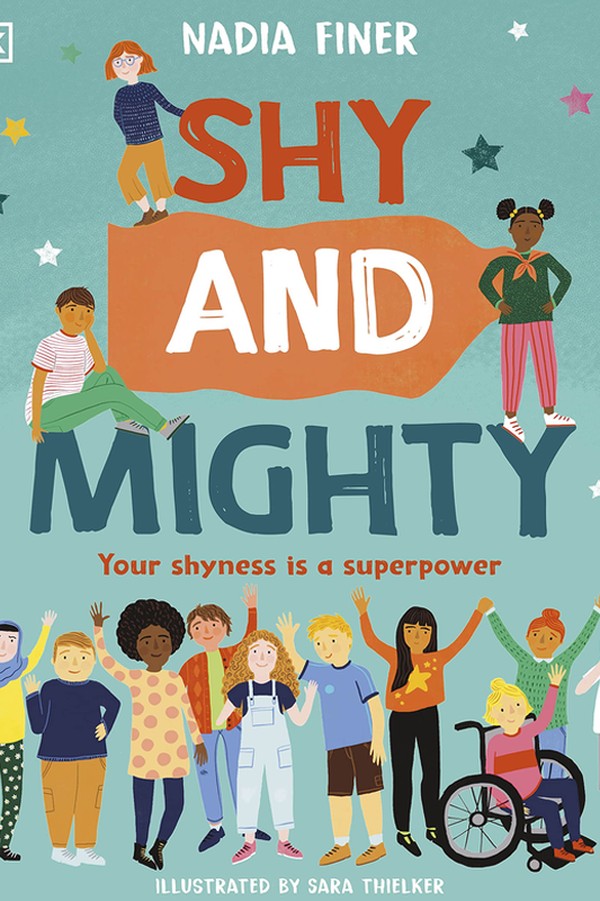
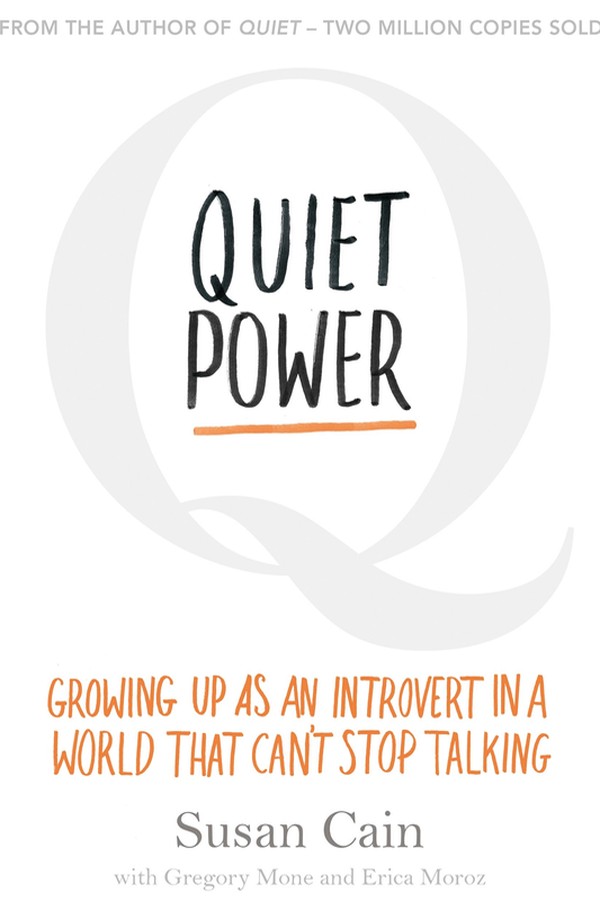
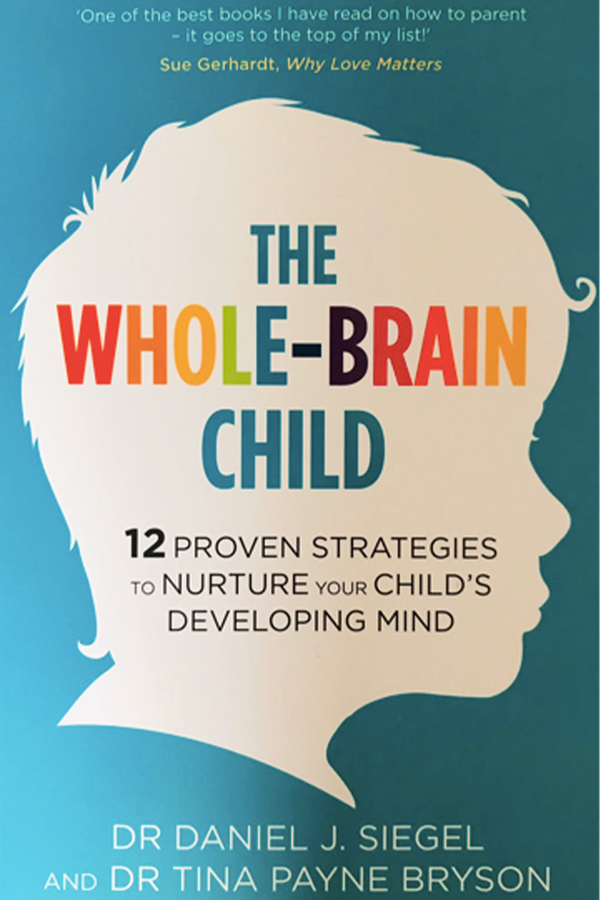


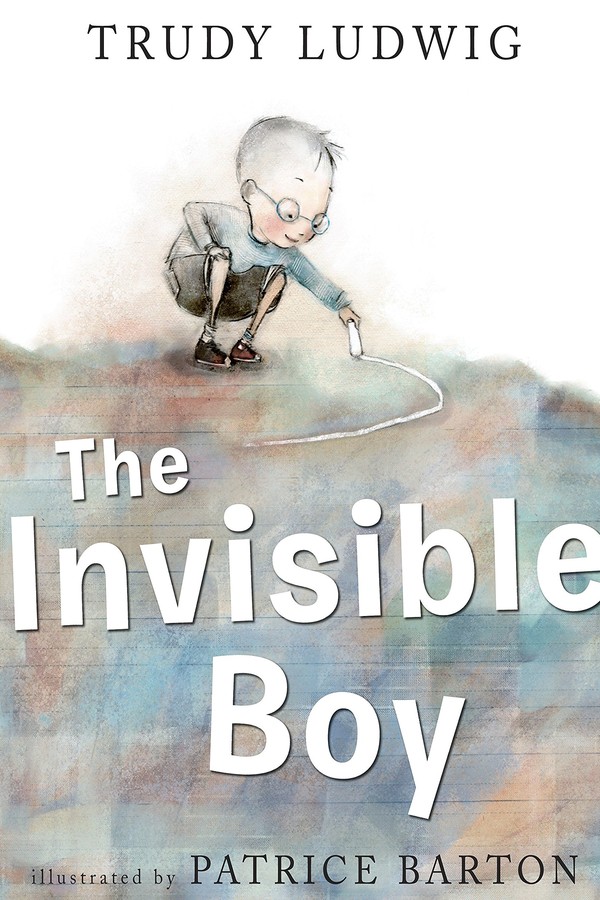

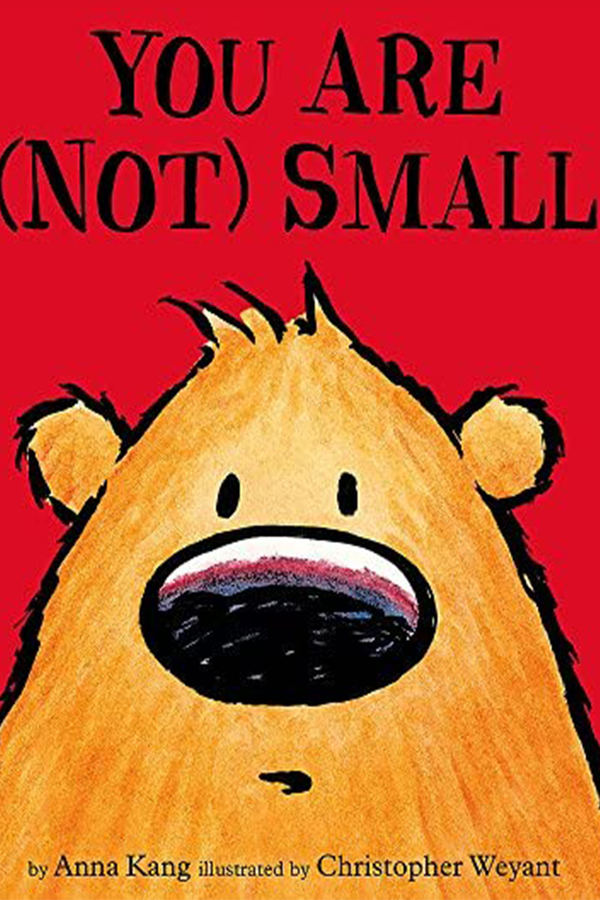
/https%3A%2F%2Fsw18.sheerluxe.com%2Fsites%2Fsheerluxe%2Ffiles%2Fwebsite-images%2F2025%2F04%2Fnew-parenting-background-image.jpg?itok=rRrLkJpg)